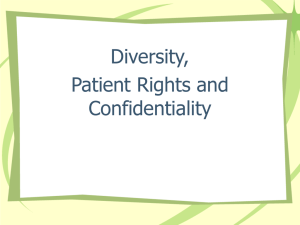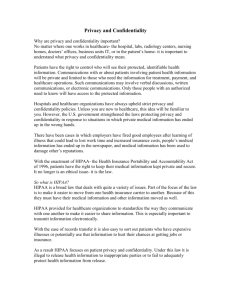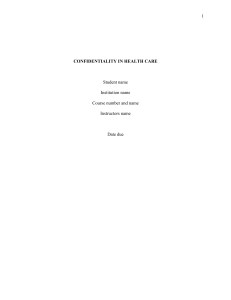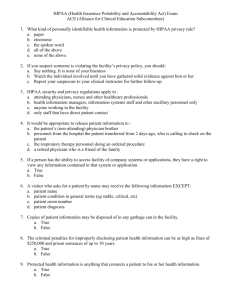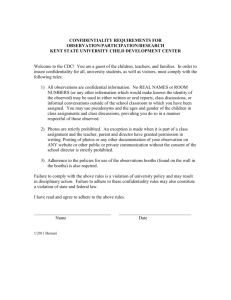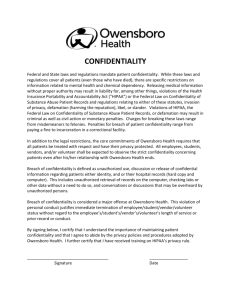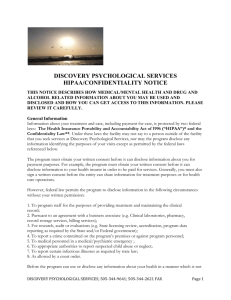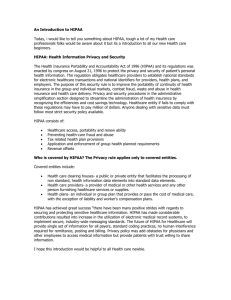01-162301-8945
advertisement
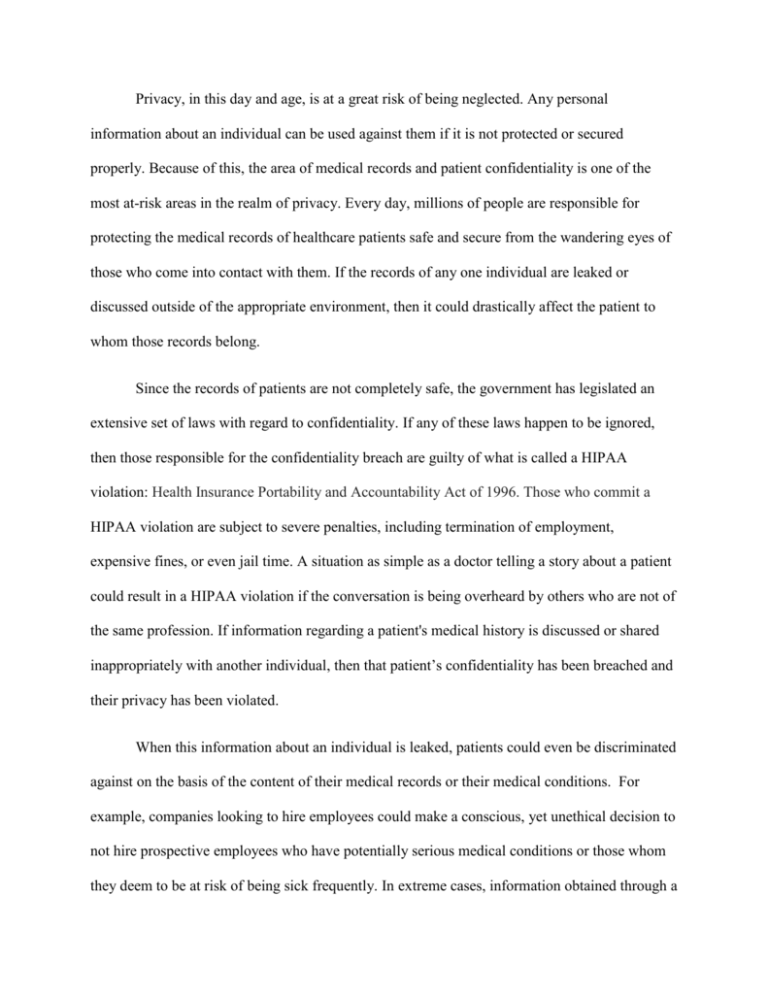
Privacy, in this day and age, is at a great risk of being neglected. Any personal information about an individual can be used against them if it is not protected or secured properly. Because of this, the area of medical records and patient confidentiality is one of the most at-risk areas in the realm of privacy. Every day, millions of people are responsible for protecting the medical records of healthcare patients safe and secure from the wandering eyes of those who come into contact with them. If the records of any one individual are leaked or discussed outside of the appropriate environment, then it could drastically affect the patient to whom those records belong. Since the records of patients are not completely safe, the government has legislated an extensive set of laws with regard to confidentiality. If any of these laws happen to be ignored, then those responsible for the confidentiality breach are guilty of what is called a HIPAA violation: Health Insurance Portability and Accountability Act of 1996. Those who commit a HIPAA violation are subject to severe penalties, including termination of employment, expensive fines, or even jail time. A situation as simple as a doctor telling a story about a patient could result in a HIPAA violation if the conversation is being overheard by others who are not of the same profession. If information regarding a patient's medical history is discussed or shared inappropriately with another individual, then that patient’s confidentiality has been breached and their privacy has been violated. When this information about an individual is leaked, patients could even be discriminated against on the basis of the content of their medical records or their medical conditions. For example, companies looking to hire employees could make a conscious, yet unethical decision to not hire prospective employees who have potentially serious medical conditions or those whom they deem to be at risk of being sick frequently. In extreme cases, information obtained through a breach could also be used to blackmail individuals. Insurance companies could even decide to charge higher premiums for those who have certain medical histories or medical conditions that deem them to be at a higher risk from an insurance standpoint. I do not believe that letting insurance companies view medical records would be a good idea because it would become unethical for them to charge higher premiums to somebody based upon certain details, unlawfully obtained, about their past medical history. These problems could easily be avoided if the medical records of hospital patients were kept private and the confidentiality of records were kept secure. The formation of the Health Insurance Portability and Accountability Act has aided in protecting patients from having their medical histories breached by enacting extremely strict penalties for those who are found to be guilty of breaches. Another result of HIPAA legislation is that medical practitioners, including hospitals as well as private physicians, have been mandated to implement electronic systems that specialize in keeping patient information secure as well as accessible to those who are authorized to view/receive it. Patients are responsible for determining who has access to their healthcare information and keeping this information up-to-date with each of their healthcare providers. Healthcare providers are even being offered rebates of sorts to help to off-set costs associated with implementing some of these electronic records keeping systems. In order to continue to successfully keep the private healthcare information of patients confidential and safe from those who would seek to misuse it, we must make sure that safeguards are set up and strictly enforced, and that those who break those safeguards or violate confidentiality laws are held accountable for their actions.
